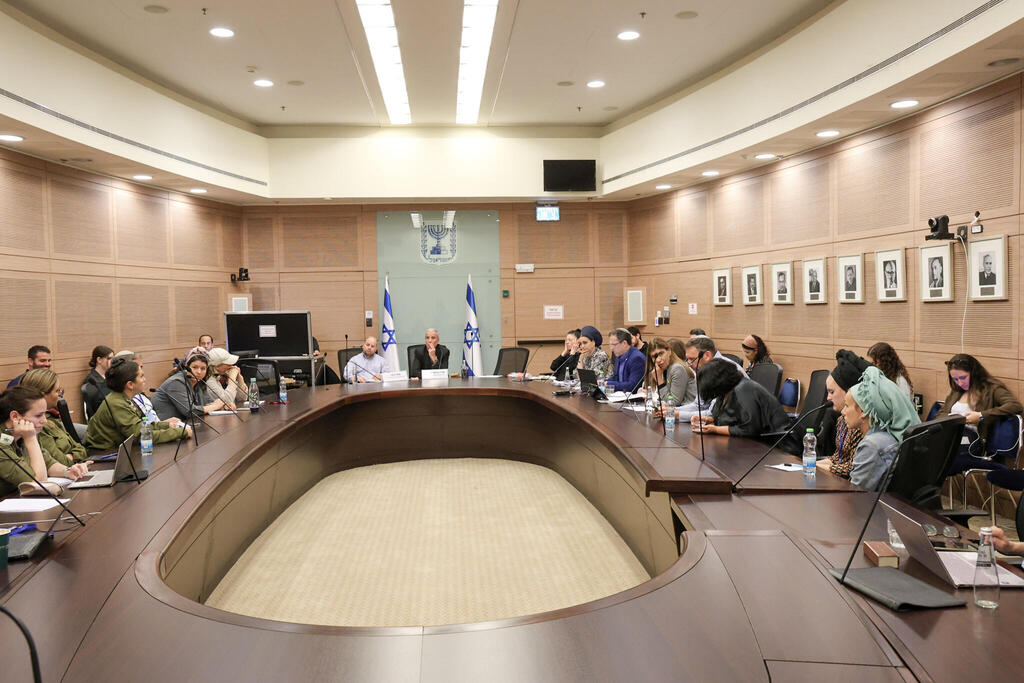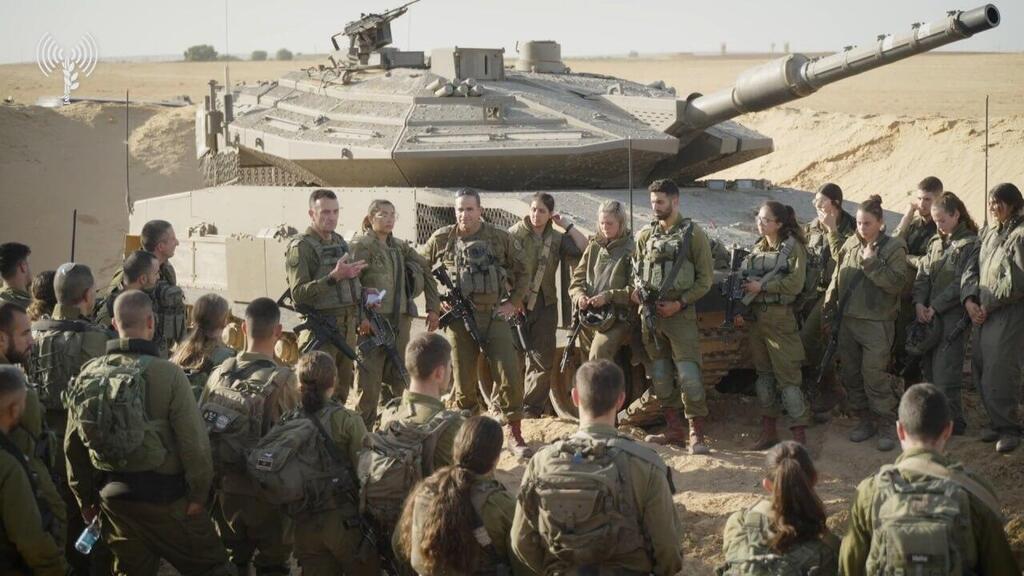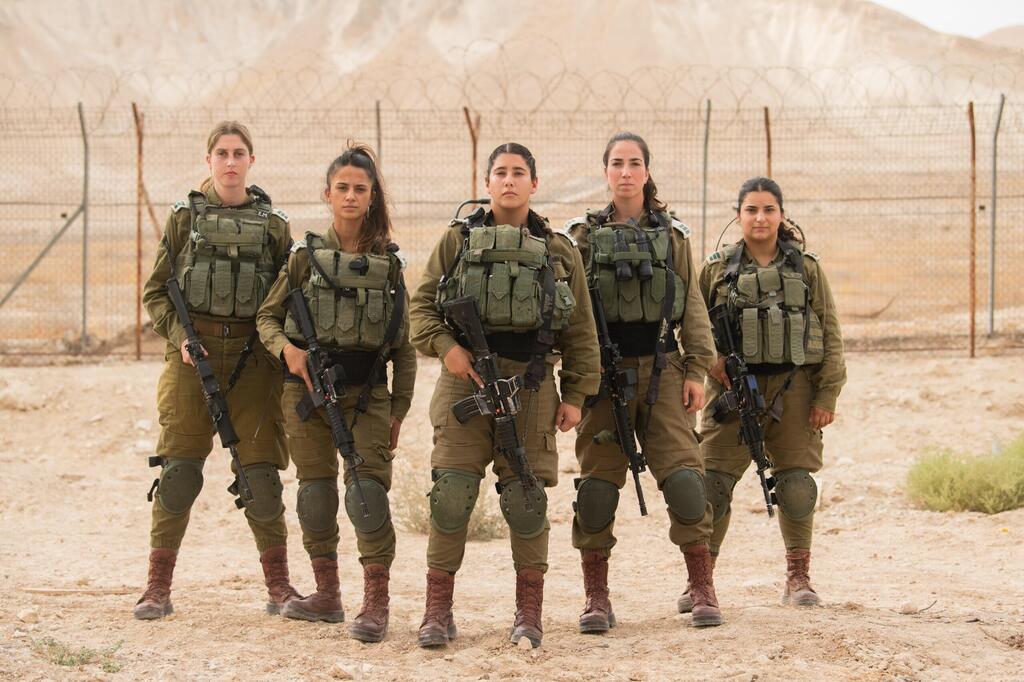Getting your Trinity Audio player ready...
The integration of women into combat roles amid the military's ongoing manpower crisis was on the agenda when the IDF Subcommittee on Human Resources convened this week . An IDF representative presented data on women serving in both active and reserve combat units, highlighting efforts to integrate women into additional roles and units. Knesset lawmaker Limor Son Har-Melech argued that "the army is not a place for religious women," while opposition members countered, saying: "After October 7, there is no doubt about the contribution of women to combat."
3 View gallery


Subcommittee on the integration of women in combat roles
(Photo: Knesset Spokesperson)
The discussion on Wednesday, led by MK Elazar Stern, focused on the growing presence of women in combat roles. Major Sapir Barabi, head of the IDF’s Sources and Combat Unit, stated, "There has been a significant increase in the number of women enlisting. Over the last decade, the proportion of women in combat roles has risen from 13.7% to 20%."
Half of the IDF combat units are still not open to women, but Barabi noted that 90% of all IDF positions are now accessible to women. "The roles that remain closed include some gender-specific positions, like sofer stam (scribe) or cantor, and primarily maneuvering combat positions that require a high level of individual physical fitness to meet operational needs."
Despite Supreme Court rulings over the past decades pushing for broader integration of women in the army, only 58% of combat positions are open to women, with the percentage being even lower in infantry units. Nonetheless, the percentage of women in combat roles has increased significantly over the past decade. For example, in 2015, women comprised only 13.7% of combat forces.
Women made up 3% of combat reserves during the Second Lebanon War, 8% during Operation Protective Edge, and 20% during the Gaza war. Attrition rates show no significant differences between men and women—for example, in Border Infantry, the overall dropout rate is 16%, compared to 15% among women.
Despite this progress, lawmaker Merav Michaeli criticized the data, calling them "disgraceful and infuriating." She said: "It’s shameful that 31 years after the Alice Miller Supreme Court ruling, which should have resolved the matter, we’re still having this discussion. In 2000, the Knesset passed a law requiring the IDF to open all units to women with minimal exceptions, yet the army continues to disregard the law."
Barbi responded that the IDF is working to expand opportunities for women gradually and cautiously through pilots, evaluations, and enhanced medical support.
3 View gallery


Former IDF Chief Halevi meeting with women and men in combat roles
(Photo: IDF Spokesperson's Unit)
Son Har-Melech of the right-wing Otzma Yehudit party argued that the army is unsuitable for religious women. "Even attempts to make certain accommodations fail to provide genuine solutions. It’s important for women to contribute to the country, but the way to do so is through national service," she asserted.
Attorney Tzafnat Noderman, CEO of the Forum for Freedom and Human Dignity, added: "This discussion is rooted in feminism without women and ignores the health implications for women. There are no women capable of handling the physical demands of intense combat roles in elite units.
"This is a biological reality. Even the IDF’s professional teams, appointed by the Chief of Staff, have warned about higher and more severe injury rates among women. Standards have been lowered in some areas because of this. What’s happening here is an experiment on human beings. History shows that people have paid the price for ideology, and now women will pay the price for this effort to erase differences between men and women," she said.
Opposition members strongly objected to these claims, with one saying: "The integration of women into the IDF cannot be stopped—it’s driven by operational necessity." Knesset lawmaker Sharon Nir from Yisrael Beiteinu said: "There is a surge of motivation among women, which deserves our respect. Religious girls, raised in homes filled with patriotism and love for the country, see the army as an opportunity for meaningful service, and they encourage each other to enlist."
Lawmaker Matan Kahana from the National Unity Party acknowledged the complexity of the issue. "Equality is an important value, but it doesn’t stand alone. We need to ensure it doesn’t harm operational readiness. Are we now restructuring the entire system for the few women who can serve in a Golani combat battalion?" he asked.
Get the Ynetnews app on your smartphone: Google Play: https://bit.ly/4eJ37pE | Apple App Store: https://bit.ly/3ZL7iNv
Rabbi Ohad Teharlev, head of the Lindenbaum Seminary and chairman of the Forum of Religious Women Enlisting, commented: "In religious Zionism, there are two central pillars—Jewish scholarship and the IDF. Women cannot be excluded from either. For years, I opposed religious women serving in combat roles, but I’ve seen countless young women who want to enlist in combat positions, and I realized I was missing the train. I approached the army to create a gender-specific track for religious women with female staff and spiritual support during their service. Last November, a unit of several dozen was established."
Stern, chair of the subcommittee, emphasized that the discussion is not about whether women should serve in combat roles. "After October 7, there’s no doubt about the contribution of women to combat. No one has the right to deny women the opportunity to serve in combat positions. At the same time, I recognize the challenges posed by mixed-gender service. The goal is to ensure that more women can serve in combat roles while also providing for the needs of religious male and female soldiers. The integration of women has enormous operational and social value."
"Women are an inseparable part of the IDF’s combat force, and we will continue working to ensure their place—while addressing all operational, moral, and social needs of both male and female soldiers," Stern concluded.



